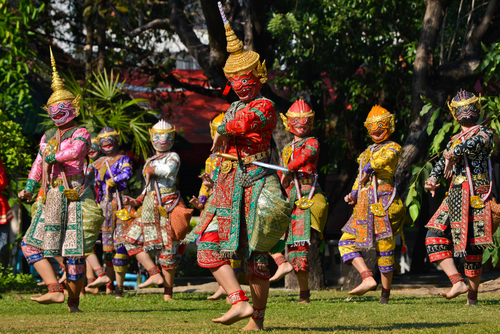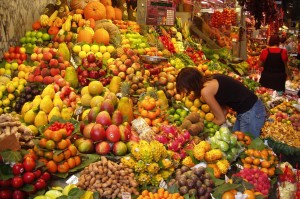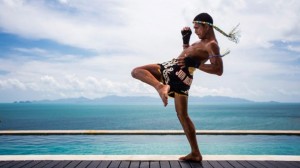
Koh Samui may be a picture perfect vacation destination but it’s also a living and working island with distinctive local customs and habits. Read on to learn more about Koh Samui culture including its markets, festivals, sports and more.
The very first settlers that landed in Koh Samui were Chinese traders and Muslim fishermen – both groups still inhabit the island living peacefully alongside their friendly Thai neighbours. In the early 1970s, Samui became popular with the hippie backpacking community as an unspoiled hideaway in the gulf of Thailand. This was the start of tourism in Samui and with impressive investment in its infrastructure, the island has since evolved into the popular vacation destination it is today.
 A great place to get an authentic taste of Koh Samui life is at the local markets like the Nathon fresh food market, the Lam Din market and the Hua Thanon fishing village. Here you will find a proud and vibrant local culture without the hubbub of too many tourists.
A great place to get an authentic taste of Koh Samui life is at the local markets like the Nathon fresh food market, the Lam Din market and the Hua Thanon fishing village. Here you will find a proud and vibrant local culture without the hubbub of too many tourists.
Another important part of daily life on Koh Samui are traditional Thai festivals. The larger celebrations are Chinese New Year which takes place in February, Songkran, the Thai New Year, in April and Loi Krathong, which is also known as the festival of light, which takes place in November. These lively festivals involve parties, processions, food fairs, temple festivals and live performances all over the island. There are also regular food and cultural events staged by the Tourism Authority of Thailand in the island’s capital Nathon.
Passing from village to village throughout the year are Koh Samui’s renowned temple fairs. Popular with locals and visitors of all ages these fairs combine live entertainment, local food, market stalls and plenty of fun. Expect to find flip flops galore, plenty of Kung Fu films on show lots of local delicacies including crispy deep-fried grasshoppers!
Buffalo fighting is still a big local sport in Koh Samui, with champion buffaloes being worth more than one million baht. The fighting season varies according to customs and ceremonies so it’s impossible to predict when to watch a fight, but if you visit at the right time they usually take place at stadiums in Ban Makham near Nathon and Ban Saket. Unlike Spanish bull fighting, the animals fight one another, locking horns in a lively display of power and play.
As Thailand’s national sport Thai boxing is another part of Koh Samui life. The sport developed from the ancient Muay Thai martial art and fighters are faced with rigorous training before stepping into the ring. Visitors can see traditional Thai fights Mon, Wed and Sat nights at Phetch Buncha Stadium on in Chaweng or at Lamai Beach on Saturday nights for lady boxing.
Local bars or ‘country’ bars are the venue of choice  for local people and are a perfect way to enjoy a typical Samui tradition. Local bars offer live local music, great food and plenty of drinks with the friendly local people. Visitors are just as welcome to join the party so come alone or bring Thai friends if you have them, to fully appreciate the local revelry. Country bars are mostly located around the main island ring road and are easy to spot with cowboy style logos and small stages by the bar.
for local people and are a perfect way to enjoy a typical Samui tradition. Local bars offer live local music, great food and plenty of drinks with the friendly local people. Visitors are just as welcome to join the party so come alone or bring Thai friends if you have them, to fully appreciate the local revelry. Country bars are mostly located around the main island ring road and are easy to spot with cowboy style logos and small stages by the bar.
Koh Samui is a stunning vacation destination with some of the friendliest local people in the world. With its culture of lively festivals, ancient temples and historic sites to sports, spas, restaurants and some of the best beaches in the world, there’s plenty to lure you to discover Koh Samui culture for yourself.